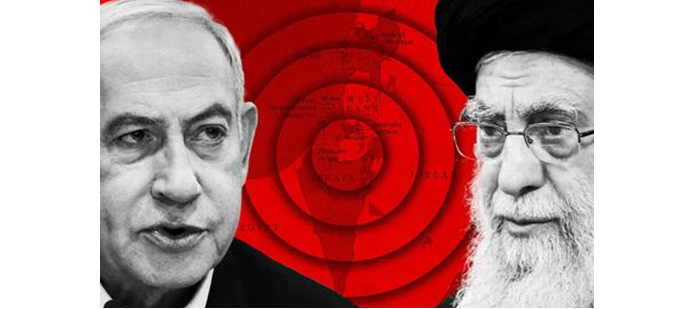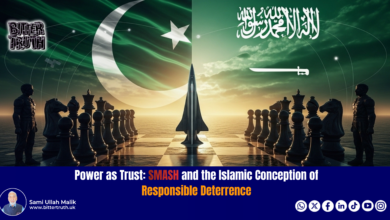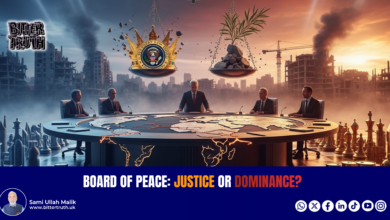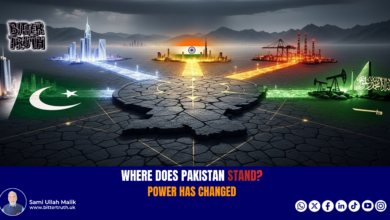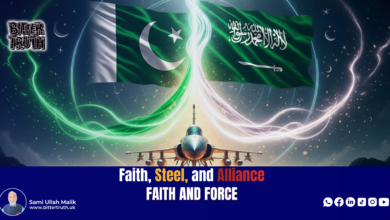Iran-Israel Conflict: Waves of Change in Global Politics
Iran’s Military Strategy: Possible Impacts of Intervention in Lebanon and Gaza
For several years, Israel had been looking for excuses to attack Iran, and particularly since October 7th of last year, its brutal actions in Gaza have been part of a broader effort to drag Iran into the conflict. Israel has long been issuing threats to attack Iran’s nuclear program, which has finally culminated in success for Israel. Earlier this year, in April, two senior commanders of Iran’s Revolutionary Guards were killed in a missile attack on the Iranian consulate in Damascus, Syria. While Israel did not officially claim responsibility, it is widely believed that Israel was behind this attack.
On July 31st of this year, at around 2:00 PM Iranian time, Hamas political leader Ismail Haniyeh was martyred alongside his personal bodyguard in a missile attack on a military guesthouse after attending the oath-taking ceremony of Iranian President Masoud Pezeshkian. And now, on September 27, 2024, following the martyrdom of Hezbollah’s 64-year-old popular leader Hassan Nasrallah and Iranian Revolutionary Guard General Abbas Nilfor o shan in an Israeli missile attack, Iran’s patience has finally run out. In response, on Tuesday night—the first day of the Jewish New Year—Iran rained down 200 ballistic missiles on Israel in just 400 seconds. This sudden escalation has once again drawn the world’s attention to the Middle East, where the bloody conflict is becoming increasingly dangerous with each passing day.
It is important to note that from stock markets to global analysts, everyone is trying to predict the next steps of the involved parties, but amid all this, the three major powers—the U.S., China, and Russia—seem unable to find a solution to the conflict. Since the October 7th attacks, the rising tensions in the Middle East have now spread from Gaza, Lebanon, and Yemen to include Iran as well. Israeli attacks have so far killed thousands, including senior leaders of Hamas and Hezbollah.
Throughout this war, Israel appears to have conducted successful operations against its enemies, including Hezbollah, Hamas, and Iran. Last week, in Israeli strikes on Lebanon, Hezbollah leader Hassan Nasrallah and several other senior leaders were killed. Furthermore, numerous senior Hezbollah commanders have also lost their lives. Now, the United States has openly entered the fray in defense of Israel, and it is certain that America’s allies are backing Israel in its actions against Hezbollah, Hamas, and Iran.
On the surface, the U.S., the U.K., and several countries in the European Union are trying to broker ceasefires, not only in Gaza but also in Lebanon. However, these efforts have not yet borne fruit. Many nations, including the U.S., fear that the ongoing conflicts in Gaza and Lebanon could spread throughout the Middle East. Last week, in his speech at the United Nations General Assembly, U.S. President Joe Biden stated that “an all-out war is in no one’s interest. A diplomatic solution is still possible and is the only way to ensure long-term security.” But despite these appeals, Israel has continued its attacks on Gaza and Lebanon, and following the Iranian missile strikes, Israel has once again threatened to strike Iran.
Since October 7, 2023, according to Gaza’s Ministry of Health, the continuous Israeli bombardment on Gaza has claimed at least 40,602 lives, with 93,855 people wounded and millions displaced. Meanwhile, Israeli airstrikes on Lebanon in September 2024 have killed more than a thousand people. On the other hand, during the ground operations in Gaza against Hamas over the past year, dozens of Israeli soldiers have been killed or wounded. Hezbollah, since October 7, has continued to launch rockets into Israel, and the Israeli Prime Minister has claimed that more than 8,000 rockets have been fired at various parts of Israel over the past year. Yemen’s Houthi fighters have also been targeting Israeli ships in the Red Sea since the Gaza war began.
Earlier this year, in April, two senior commanders of Iran’s Revolutionary Guards were killed in a missile attack on Iran’s consulate in Damascus. Although Israel did not claim responsibility for the attack, it is widely believed that Israel was behind it.
Recently, in a speech at the United Nations, Israeli Prime Minister Benjamin Netanyahu stated that all of these actions in the Middle East are part of Israel’s self-defence. “Israel desires peace,” he said, “but we are faced with savage enemies who seek our destruction, and we must defend ourselves against them.” Netanyahu harshly criticized Iran and said that Israel is defending itself on seven different fronts against threats from Iran. He concluded his speech by saying, “Israel will win this war because we have no choice but to win.”
Meanwhile, before the situation in Lebanon heated up, the United States had been trying to negotiate a ceasefire between Israel and Hamas, but those negotiations have stalled. Still, looking at the statements from Israeli Prime Minister Benjamin Netanyahu, it seems clear that Israel is not influenced by calls for a ceasefire or diplomatic efforts. Global analysts view U.S. statements with scepticism, but Netanyahu’s continued stance suggests that Israel is not moved by the demands for a ceasefire or diplomatic attempts.
In a three-minute video message shared on the social media platform X on Monday, Israeli Prime Minister Benjamin Netanyahu addressed the Iranian public, stating, “There is no place in the Middle East that Israel cannot reach, no location where we cannot go to protect our people and country.” Speaking directly to the Iranian people, he added, “With every passing moment, the (Iranian) government is pushing the honourable Persian people closer to destruction.”
Netanyahu further remarked that when Iran is “finally free,” everything will change, and both nations will be able to live in peace. The Israeli Prime Minister urged the Iranian people not to let “the fanatic mullahs crush your hopes and dreams. You deserve better.” He emphasized, “The Iranian people should know that Israel stands with you. Together, we will see a prosperous and peaceful future.”
Following Iran’s missile strikes, the question arises as to why the world’s three major powers have been unable to convince the involved parties in this conflict to agree to a ceasefire. Aside from the United States, why have global powers like Russia and China failed to play an effective role in this matter?
Experts and analysts observing Middle Eastern and international foreign policy believe that the lack of cooperation between the U.S., Russia, and China, as well as internal American politics, are some of the reasons it has been difficult to persuade Israel to agree to a ceasefire. Are the differences between the U.S., China, and Russia the reason for failing to stop Israel? Or is there an attempt to curb China’s growing economic influence in the region? After all, China successfully played a key role in ending a bitter war between Iran and Saudi Arabia in Yemen, which resulted in significant losses for American arms companies. Despite global sanctions on Iran, China signed a 25-year strategic cooperation agreement with Iran on March 27, 2021. This long-term agreement covers various economic issues faced by Iran, which has been suffering under severe U.S. sanctions, and allows China to purchase ample oil from Iran.
This agreement with China is the first long-term deal Iran has signed with a major global power. Previously, in 2001, Iran signed a cooperation agreement with Russia, mostly in the field of nuclear energy, but the duration of that agreement was only ten years. Later, the agreement was extended twice for five years each, bringing the total duration of the Russo-Iranian agreement to twenty years.
There is significant warmth in the relationship between China and Iran, and in 2019, both countries participated in joint naval exercises with Russia in the northern Indian Ocean. The trade volume between Beijing and Tehran has reached approximately $20 billion annually in recent years. In 2014, the annual trade volume was around $52 billion, but it decreased due to U.S. sanctions and the sharp drop in oil prices in global markets. Therefore, it can be said to some extent that the U.S. will not allow any efforts for a ceasefire, particularly those led by China, to succeed in the recent conflict. Moreover, due to the Ukraine war, the U.S. will continue to be the biggest obstacle to Russia’s involvement in resolving the situation.
An obvious example of this is that while the U.S. appears to be trying to prevent a major war in the Middle East, it is simultaneously providing billions of dollars to Israel to strengthen its military power. The U.S. has even ordered its forces to defend Israel, making it clear that it has become a party to this war. This exposes the contradiction in the U.S.’s recent statements about calling for a ceasefire. Last week, Israel announced that it had received an aid package worth $8.7 billion from the U.S. to continue its military operations.
Einar Tangen, a senior fellow at the Chinese think tank Taihe Institute, remarked, “On one hand, the U.S. talks about a ceasefire, but on the other hand, it is providing Israel with weapons, ammunition, and intelligence support that is being used to kill thousands of civilians, including women and children.” While the U.S. is now advocating for a ceasefire, in the past, it has vetoed ceasefire resolutions at the United Nations.
In this context, the British representative of the U.S. State Department, Margaret McLeod, told global media, “We opposed the same resolution that ignored Hamas’s terrorism or disregarded Israel’s right to self-defence.” On the other hand, major powers like Russia and China have issued statements condemning attacks that increase tensions in the region, but no practical steps have been taken by these countries so far.
In recent years, China’s influence has been rising globally. A prime example of this influence is the restoration of relations between Iran and Saudi Arabia last year, almost seven years after severing ties, thanks to China’s mediation efforts. Additionally, China is the largest economic partner in the region, despite intense border disputes. According to Indian news agency PTI, bilateral trade between the two nations, which was $1.83 billion in 2001, has now surged to $123 billion in just 11 months of this year.
After the Israeli attack in Lebanon, which resulted in the death of Hassan Nasrallah along with several senior Hezbollah leaders, China’s foreign policy response has been cautious and measured. Beijing simply stated that it opposes any violation of Lebanon’s sovereignty and security, condemning the operations against civilians. The Chinese Ministry of Foreign Affairs mentioned that the rising tensions between Lebanon and Israel are linked to the ongoing conflict in Gaza, and expressed concern about the growing instability in the region. “China urges all involved parties, especially Israel, to take measures to resolve the situation and prevent this conflict from spiralling out of control,” it said.
On the other hand, Russia, which is a significant ally of Iran in the region, has not played an effective role in resolving the conflict either. However, like China, Russia has condemned the escalation. Kremlin spokesperson Dmitry Peskov issued a statement on Monday condemning the death of Hezbollah’s leader and warning that this could increase the chances of a larger war in the Middle East. Russia denounces any actions that would escalate tensions in the region further.
Barbara Slavin, a fellow at the American think tank Stimson Centre, said that after Russia’s invasion of Ukraine in 2022 and the subsequent U.S. sanctions on Moscow, relations between the two countries have deteriorated significantly. She added that the current frosty relations between China and the U.S. are no secret either, or thus, it is unlikely that China would cooperate with the U.S. to resolve the Middle East conflict. Commenting on the situation, Einar Tangen said, “China is not in a position to dictate terms to the U.S. or nuclear-armed Israel.” He further noted that “China has consistently called for ceasefires and supported negotiations aimed at achieving a two-state solution between Israel and Palestine.”
For decades, it has been widely believed that Israel possesses nuclear weapons, although the country has never confirmed or denied it. China’s statement highlights how difficult it is to dictate terms to a nuclear power. Has Pakistan’s leadership ever considered the advantages of this divine blessing of nuclear deterrence?
In the United States, presidential elections are scheduled for November this year, with a closely contested race expected between Vice President Kamala Harris and Republican candidate Donald Trump. According to Barbara Slavin from the Stimson Centre, the Biden administration has maintained a pro-Israel stance. “We all know that Joe Biden has always been reluctant to apply real pressure on Israel by limiting arms supplies,” she said. Biden’s statement taking full responsibility for Israel’s security strongly supports Barbara’s claim.
“With the U.S. election just weeks away, I don’t think either Biden or Kamala Harris would propose tough measures against Israel, as it could help Trump win re-election.” It is worth noting that as president, Donald Trump recognised Jerusalem as Israel’s capital in 2017, a move that many countries criticised.
However, Barbara suggests that “if Kamala Harris wins, we might see increased U.S. pressure for a ceasefire in Gaza and Lebanon. But this will largely depend on where Israel and Iran draw the line in the current phase of the conflict.”
Following the death of Hassan Nasrallah, Iran’s Foreign Ministry spokesperson, Nasser Kanani, stated that Iran would not send forces to Lebanon or Gaza. “There is no need to send Iranian volunteer forces because the fighters in Lebanon and Palestinian territories have the capability and strength to defend themselves against aggression,” he said. Meanwhile, U.S. officials have acknowledged that American efforts for a ceasefire have been insufficient so far. U.S. State Department spokesperson Margaret McLeod admitted, “I wouldn’t say the U.S. government has done enough until we see a ceasefire. We believe that the conflict between Israel and Hamas should be resolved through diplomacy.”
She described reports from Israel and Lebanon as “concerning,” adding that since October 7, U.S. Secretary of State Antony Blinken has made eleven trips to the Middle East, as the U.S. seeks a diplomatic solution to the conflict. However, the rapidly escalating flames of war that are pushing global peace to the brink appear to be the outcome of Blinken’s repeated diplomatic missions.
It is important to note that Iran’s attacks on Israel have come at a time when Israel has launched not only airstrikes on Lebanon but also initiated a ground offensive, alongside airstrikes on Syria and Yemen. This raises the question: Could a new and larger war break out in the region? And could a direct open conflict between Iran and Israel drag other seemingly neutral countries into the fray, especially as Iran has openly accused these nations of siding with Israel and has issued dire warnings of severe consequences?

